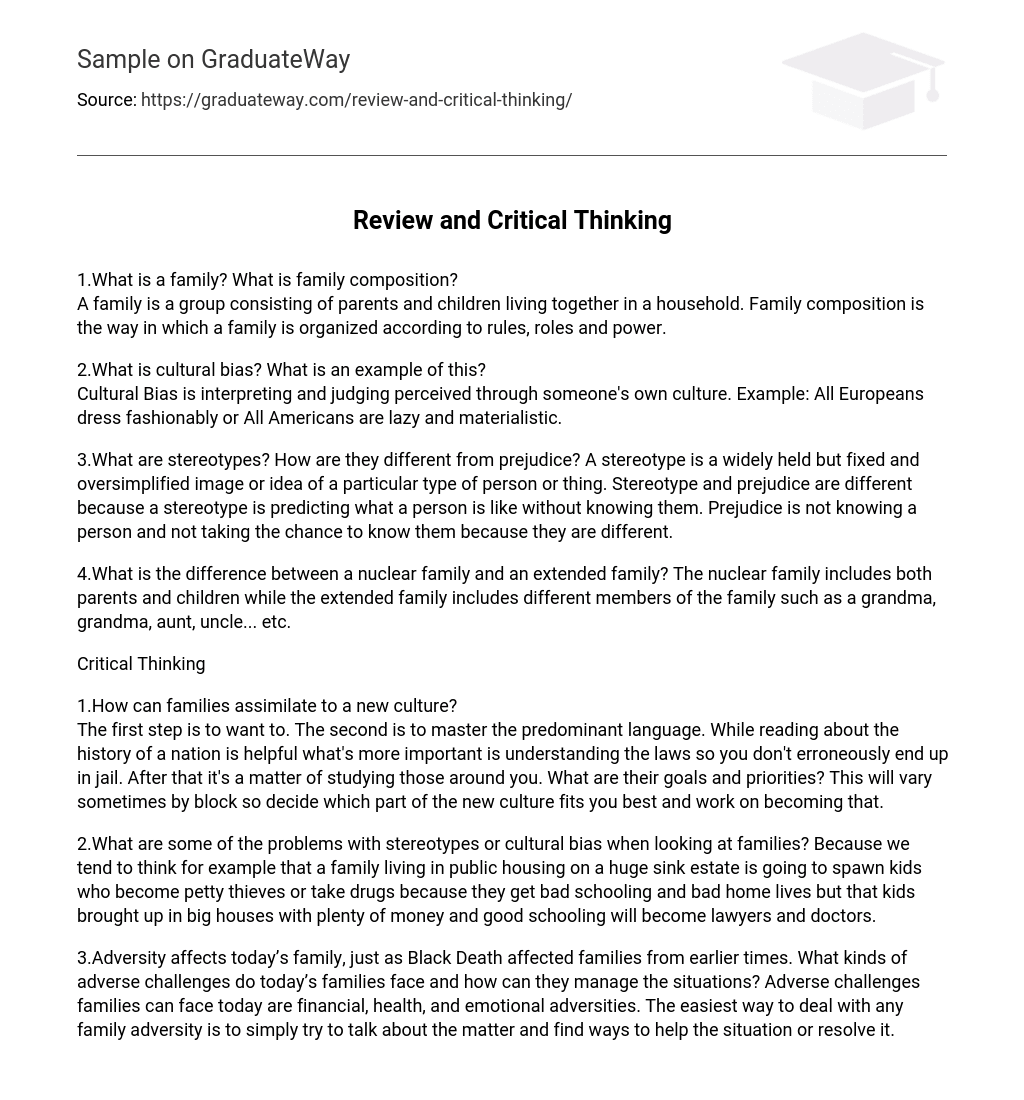1.What is a family? What is family composition?
A family is a group consisting of parents and children living together in a household. Family composition is the way in which a family is organized according to rules, roles and power.
2.What is cultural bias? What is an example of this?
Cultural Bias is interpreting and judging perceived through someone’s own culture. Example: All Europeans dress fashionably or All Americans are lazy and materialistic.
3.What are stereotypes? How are they different from prejudice? A stereotype is a widely held but fixed and oversimplified image or idea of a particular type of person or thing. Stereotype and prejudice are different because a stereotype is predicting what a person is like without knowing them. Prejudice is not knowing a person and not taking the chance to know them because they are different.
4.What is the difference between a nuclear family and an extended family? The nuclear family includes both parents and children while the extended family includes different members of the family such as a grandma, grandma, aunt, uncle… etc.
Critical Thinking
1.How can families assimilate to a new culture?
The first step is to want to. The second is to master the predominant language. While reading about the history of a nation is helpful what’s more important is understanding the laws so you don’t erroneously end up in jail. After that it’s a matter of studying those around you. What are their goals and priorities? This will vary sometimes by block so decide which part of the new culture fits you best and work on becoming that.
2.What are some of the problems with stereotypes or cultural bias when looking at families? Because we tend to think for example that a family living in public housing on a huge sink estate is going to spawn kids who become petty thieves or take drugs because they get bad schooling and bad home lives but that kids brought up in big houses with plenty of money and good schooling will become lawyers and doctors.
3.Adversity affects today’s family, just as Black Death affected families from earlier times. What kinds of adverse challenges do today’s families face and how can they manage the situations? Adverse challenges families can face today are financial, health, and emotional adversities. The easiest way to deal with any family adversity is to simply try to talk about the matter and find ways to help the situation or resolve it.





